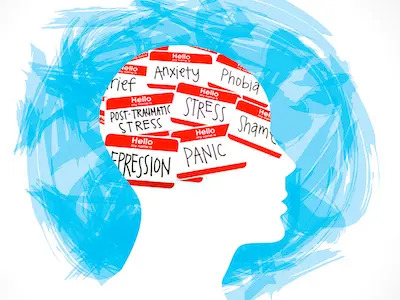
Mental Health Crisis among students due to COVID-19 pandemic.
COVID-19 has created havoc for everyone including the student community. It has been more than 1 ½ years since it started last year in March 2020. When it all began everyone thought that in a matter of few months everything would become normal and it’s just a temporary phenomenon. No one could predict that this pandemic will change the lives of everyone and impact them to such a large extent. It started with the lockdown of offices, schools, and colleges. Everyone was anticipating that everything will open soon but the current pandemic looks to remain for long. When talking about students they were initially more than happy to stay at home. They all found it comfortable sitting at home and attend classes online.
But the consequences were too many as exams could not be conducted physically and there was a lot of debate among educators and government as if physical examinations are feasible in the current situation. The 10 th and 12 th board exams were scheduled and postponed again and again. Even all the entrance exam schedules like IIT, NEET, CET were postponed many times. On one hand, some supporters felt that the student community should not be put into danger just for a mere exam and came up with an excellent framework of internal assessments. While other felt that student can take proper protocol for COVID-19 and appear for their examinations. Some others suggested that we need to rush to vaccinate people between the 18-44 age group quickly so that we can safely guard our students. AICTE and UGC also came up with the policy of managing this crisis with a student-friendly policy for the institutes and colleges. These debates have led to nothing but more doubts in the mind of the student community.
This all led to immense pressure on the student community. Firstly, they have to deal with the complete change in learning pedagogy and online teaching then they have no clear direction when their examinations will happen. It is a known fact that any individual can manage change and uncertainty to some extent but when this cycle becomes too long it impacts them to a large extent. Students were preparing for examinations again and again and as the exams were rescheduled it created a lot of frustration among students. Delay in the admission process is making them vulnerable to a lot of ambiguity and long-term uncertainty. When you are not clear how your future event will unfold it makes you completely helpless as you are not able to control the situation. Students are also in a fix if they do not pursue higher education then will they get jobs as the job market itself is lull and companies are not planning to recruit and expand in the current crisis.
As students are confined to homes, they have no social interaction with their friends, and depression and anxiety have become common phenomena. Human beings are social animals, and they need social interaction to remain alive. They need to share their fears and threats with other of their age group. Complete isolation leads to socially cutting off with others and which may impact social wellbeing. Too much screen time and remaining on social media has created a virtual image that may be projected wrongly. Young adults are under a lot of pressure to live up to their image as projected on social media and this has led to social media fatigue.
Another interesting phenomenon that is coming up is the disturbance of circadian rhythm which is a 24-hour cycle that is part of bodies internal clock running in the background to carry out essential functions and processes. The most important circadian rhythm known is the sleep-wake-up cycle. Due to the current lockdown, there is a lot of change in the eating and sleep cycle among students as they remain awake at night watching Netflix or chatting with their friends and do not eat or sleep on time. Many studies have suggested that the long-term effect of disturbance of circadian rhythm is related to depression and mental health.
The parents are also confused as to how to guide their children. They did not want to send their children for the exam, but they also want them to perform well academically. They are waiting and praying that everything should open, and they can see their children living a normal life and having their normal college life surrounded by friends and teachers whom they can connect to.
A lot of surveys and studies are talking about the stress and anxiety of students and young adults. It has become the talk of the town, and everyone is fearing its consequences. But no clear action or strategy is thought through. According to a study published in the Asian Journal of Psychiatry, students suffering from depression in Indian Universities are 37.7% (moderate), 13.1% (severe), and 2.4% (extremely severe). The study further suggests that the students who reported positive views about the university academic environment and living arrangements had a lower level of depression compared to others. Personal resilience’s such as being able to share personal problems with others and doing regular exercise were found to be associated with positive mental health. The findings of the study emphasized the need for immediate mental health support services for about 15.6% of the students who were either suffering from severe or extremely severe depression at the University.
What can be done in the current situation to reduce anxiety for students:
Parent counselling to manage stress among the children
Institutes/College to focus on the overall well-being of students
Admission counsellor to provide continuous support during the admission process
Awareness drive for all students to understand their current level of mental state
Online webinar/workshops for students to handle anxiety/stress
24 by 7 On-call support service for students
Teach the student to manage their overall well-being by yoga and meditation
Empathy towards student community by government/Educators /Policymakers
In the end, it is our duty as educators and policymakers to be responsible for the mental health of our future generations. The government with the educators and higher institutions should investigate the long-term effect of the pandemic and provide a more conducing environment to our students who are juggling with the pressure of academic performance and social isolation and do not know what their futures hold for them. If as a society, we all come together to support our future generation then only we will be able to give our next generation more healthy and happy adults.
For further queries get in touch with us
Dr. Neerja Kashive


